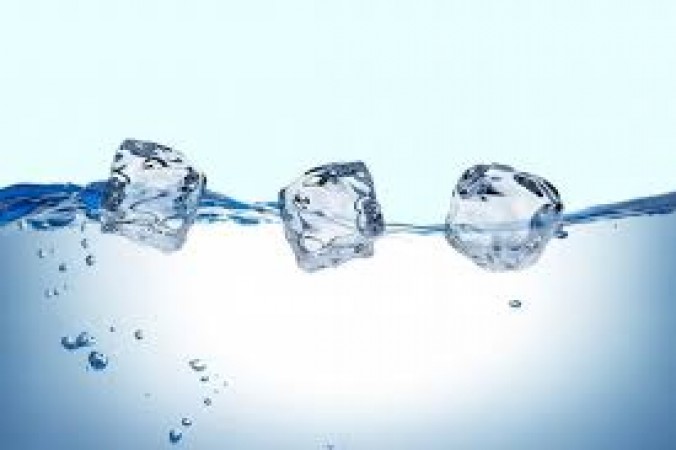
Ice cubes in a drink are a common sight, but have you ever wondered why they float in water but sink in alcohol? This intriguing phenomenon is rooted in the unique properties of water and alcohol. Let's dive into the fascinating science behind this!
Density is the mass per unit volume of a substance. In simpler terms, it's how much "stuff" is packed into a given space. When an object is placed in a liquid, its ability to float or sink depends on the densities involved.
Buoyancy is the upward force exerted by a fluid that opposes the weight of an object immersed in it. If the buoyant force is greater than the object's weight, it floats. If not, it sinks.
Water is an extraordinary substance with unique properties. One such property is its density anomaly. Most substances become denser as they cool. However, water reaches its maximum density at 4°C (39°F). When it freezes, it forms a crystalline structure that is less dense than liquid water, making ice less dense than water.
The secret behind this anomaly lies in hydrogen bonding. In liquid water, molecules are closely packed but can move past each other. When water freezes, these molecules form a rigid, hexagonal structure, keeping them farther apart compared to the liquid state. This structure is why ice floats on water.
Alcohol, specifically ethanol (the type found in alcoholic beverages), has a lower density than water. Pure ethanol has a density of about 0.789 g/cm³, whereas water has a density of 1 g/cm³.
Since ice is less dense than water but more dense than ethanol, it sinks in alcohol. The ice cube's crystalline structure, while lighter than liquid water, is still heavier than ethanol, causing it to sink.
Saltwater is denser than freshwater because of the dissolved salts. Ice floats even more readily in saltwater than in freshwater due to the increased density of the solution.
Oil, like alcohol, generally has a lower density than water. Depending on the type of oil, ice may either float or sink, but it typically floats due to most oils being less dense than water but denser than ethanol.
Temperature significantly affects the density of liquids. As temperature increases, liquids generally become less dense. This change can influence whether ice floats or sinks in various liquids.
The presence of impurities or additives can alter the density of a liquid. For example, adding salt to water increases its density, affecting the buoyancy of ice.
While pressure has a lesser effect on liquids compared to gases, extreme pressures can influence density. However, this is more relevant in scientific and industrial contexts than everyday observations.
The floating of ice in water has significant implications for our environment. Icebergs float because the ice is less dense than seawater. This principle is crucial for understanding polar ice caps and their impact on global sea levels.
In culinary practices and mixology, understanding why ice behaves differently in various liquids can enhance the texture and presentation of drinks and dishes.
You can explore these concepts at home with simple experiments. Try placing ice cubes in different liquids like water, saltwater, and alcohol, and observe the results. It's a fun and educational way to see science in action!
Create a density column using liquids of varying densities. Start with honey or syrup, followed by water, oil, and finally, alcohol. Drop small objects like grapes, corks, and ice cubes to see where they settle. This experiment visually demonstrates density differences and buoyancy.
Understanding why ice floats on water but not on alcohol boils down to the principles of density and buoyancy. Water's unique density anomaly and hydrogen bonding cause ice to be less dense than liquid water, allowing it to float. In contrast, the lower density of alcohol makes ice sink in it. These fascinating properties not only explain everyday observations but also have broader implications for environmental science and culinary arts.
Wearing sandals also leaves marks on your feet, so follow these tricks
When was the saree worn for the first time, how did it become a part of Indian culture?